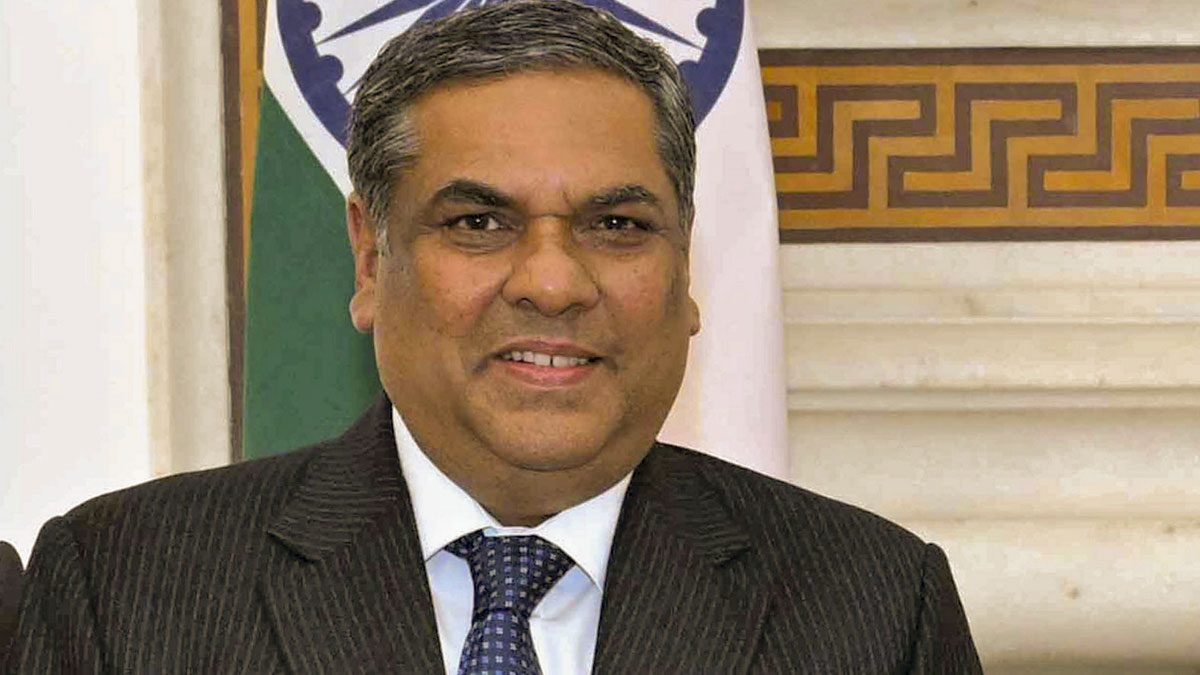Justice Sanjiv Khanna: A legacy of law and liberty

The brief tenure of Justice Sanjiv Khanna as Chief Justice of India stands as a testament to quiet determination and subtle yet meaningful transformation. On Wednesday, Justice B.R. Gavai will step in as the next Chief Justice of India as Justice Khanna retires on Tuesday.
Though Justice Khanna served for only six months and had never held the position of a High Court Chief Justice before, he brought a thoughtful, introspective approach to the Supreme Court's leadership. Reserved by nature and rarely in the spotlight, he defied expectations, leaving behind a legacy marked not by grand gestures, but by measured decisions and an unwavering commitment to judicial integrity.
Chief Justice Sanjiv Khanna rarely courted attention through speeches or public statements as he kept a deliberate distance from the spotlight. His focus remained firmly on the courtroom, where his judgments did the talking.
His father, Justice Dev Raj Khanna, a respected judge of the Delhi High Court, and his uncle, the legendary Justice Hans Raj Khanna, a Supreme Court judge, famed for his dissent in the 1976 Habeas Corpus case, shaped young Sanjiv’s world. Law wasn’t just a profession in the Khanna household, it was a calling, a pursuit of justice that pulsed through their conversations and values.
Justice Khanna’s early years were marked by discipline and curiosity. At Modern School, Barakhamba Road, he honed his intellect, graduating in 1977 before earning a Bachelor of Arts from St. Stephen’s College in 1980. Then, he enrolled at the Campus Law Centre, University of Delhi.
Khanna’s legal career began humbly in the crowded corridors of Tis Hazari’s district courts, where he tackled diverse cases, from civil disputes to criminal matters. His sharp mind and meticulous approach soon led him to the Delhi High Court, where he specialised in constitutional law, taxation, arbitration, and environmental law.
As a Supreme Court judge, he authored 173 judgments, tackling issues from electoral bonds to Article 370’s abrogation. His 2024 ruling rejecting 100 per cent VVPAT verification underscored his trust in institutional safeguards, while his grant of interim bail to Arvind Kejriwal emphasised liberty over prolonged detention. He was on the five-judge bench that declared the Electoral Bond Scheme unconstitutional, reaffirming voters' right to information.
Justice Khanna prioritised accessible justice, streamlined criminal case management, and tackled pendency with strategic case allocation. His vision for comprehensible judgments and mediation aimed to demystify the law for ordinary citizens. As Chief Justice, Khanna faced monumental cases, from the Places of Worship Act to the Bihar caste census.
Amid the controversy surrounding the proposed transfer of Justice Yashwant Varma, following the discovery of unaccounted cash at his residence, CJI Sanjiv Khanna made a decisive move by making the relevant Collegium details public. It was a clear message as and when questions of public trust arise, transparency will have to rule.
Justice Sanjiv Khanna played a crucial role in shaping the judiciary’s future through key Collegium decisions during his tenure. Under his leadership, 51 out of 103 proposed candidates were recommended for appointment as High Court judges. The selections reflected a conscious effort toward inclusivity comprising 11 from the OBC community, one from the Scheduled Castes, two from the Scheduled Tribes, eight from minority communities, and two individuals related to sitting or retired judges.
Twelve recommendations are still awaiting the government's approval. Notably, three judges were also elevated to the Supreme Court during his time as Chief Justice.
A landmark moment of CJI Khanna’s tenure came with the full court resolution passed on April 1, 2025, making it mandatory for all judges to declare their assets upon assuming office, a significant shift from the previous voluntary practice. Just days later, by April 5, 2025, the asset declarations were made publicly available on the Supreme Court’s official website, marking a strong push for greater transparency within the judiciary.
On the day of his retirement, Chief Justice Sanjiv Khanna made a quiet yet powerful statement that he would not be accepting any post-retirement position. Speaking from the ceremonial bench, he said, “Public trust isn’t something you can demand. It has to be earned and the Supreme Court has done that.”
Visibly moved, he added, “I am speechless. I carry with me a lifetime of memories. Once you are a lawyer, you remain a lawyer. The judiciary is not just the Bench, it’s the Bar too. The Bar is the conscience keeper.”
India